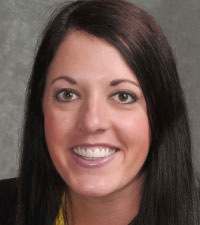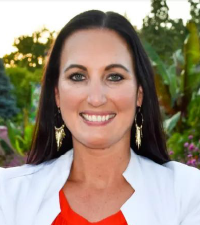Planned Life Changes in Lincoln
Life is full of decisions—some come at us at a moment’s notice while others take time and require a lot of careful thought and consideration. The latter is what we want to spend some time talking about here. Events like getting married, having a baby, buying a house or vehicle, planning for retirement, changing career paths—these big purchases and big moves call for big support systems. Maybe that outlet of support comes from a friend or family member in your life, but it’s also smart to involve a professional. Managing finances and being insured are too important to overlook. This is why you should have an accountant or financial advisor and a trusted insurance representative in your corner. We spoke with some of these professionals to get their advice on the topic.
The first professional we talked to in the community was Craig Willeke of Willeke Financial Group, LLC. (willekefinancialgroup.com)
“When you have a big life change coming up, job change, marriage, baby, etc. It is important to prepare as much as you can ahead of time,” said Craig. “You should also factor in contingencies, for if things don’t go quite to plan.”
Craig provided us with a few tips to help prepare:
• Try to imagine all the different possible outcomes and how you would respond. If you play out good as well as bad scenarios ahead of time, you will only have to carry out the plans that you made, not come up with a new plan in a crisis.
• Be ready to ask these good questions when:
1. Changing jobs: is the pay comparable? What does the benefit package look like? What if you the new job isn’t a good fit? How does the commute change? Etc.
2. Getting married: what happens if we go over budget? What if the venue falls through? How will bad weather be handled? Etc.
3. Having a baby: How are we going to handle sleep deprivation? What will work look like? Will there be less income due to maternity/paternity leave?
“Hopefully you get the point,” Craig said. “The more contingencies you plan for, the more ready you will be when one comes up. Like I tell my clients. We all fall down, but if we have a cushion (plan) to land on, it won’t hurt quite so bad.”
This educational, third-party article is provided as a courtesy by Craig Willeke Agent, New York Life Insurance Company. Craig is also a Financial Advisor with Eagle Strategies LLC, A Registered Investment Advisor and a New York Life co.
Planning ahead really is the way to go. For example, you don’t wait to start thinking about retirement when it’s time to retire. Retirement is something you want to be preparing for throughout your entire career. Do you have a retirement plan in place?
If not, Edward Jones (edwardjones.com/us-en) offers many types of retirement accounts and can help you understand the differences, so you can choose what makes the most sense for your financial goals and investing strategy. Local Financial Advisor Bethany Arnold pointed out that a change a person might need to plan for in their life is switching employers.
“Leaving an employer can be a big decision when it comes to how it will affect your 401(k), but you have options and it’s important to understand them,” said Bethany. “If you’ve retired or changed jobs, you may have questions about whether to roll over your employer’s 401(k) retirement plan.
According to Bethany, there are typically four options for retirement plan assets:
Option 1: Leave the money in your former employer’s 401(k) plan
Option 2: Move the money to your new employer’s 401(k) plan
Option 3: Roll over the money to a Traditional or Roth IRA
Option 4: Cash out the 401(k) account, which is subject to tax consequences
“Leaving your money where it is or moving it to your new employer’s 401(k) may be an option, depending on the terms of the plan,” said Bethany. “Rolling over your 401(k) to a Traditional or Roth IRA is also an option.”
According to Bethany, there are many benefits to having an IRA. These include:
• Ability to add money—You should be able to add money to your IRA as long as you meet certain income requirements. This allows you to consolidate your retirement and other accounts, which may make it easier to monitor your investments and simplify account information at tax time.
• Investment choices—Traditional and Roth IRAs typically have a broader range of investment options than employer plans, but you may not have access to the same investments that are in your plan.
• Available services—Through our face-to-face approach to serving clients, your Edward Jones financial advisor can help you identify and implement strategies to help you reach your financial goals.
• Fees and expenses—Edward Jones IRA fees generally include an annual account fee, investment-related expenses and termination fees. For the current fee schedule, see IRA Schedule of Fees.
• Penalty-free distributions—Generally, you can take money from an IRA without tax penalties at age 59½.
• Required minimum distributions—Generally, you must take minimum distributions from a traditional IRA beginning at age 72.
“As for cashing out, it’s not what I’d recommend because it means those funds will not be there when you need them in retirement,” said Bethany. “In addition, cashing out your 401(k) generally means you’ll have to pay taxes on the withdrawal, and there’s typically an additional 10% tax penalty if you’re younger than 59½, unless you left your employer in the calendar year you turned 55 or older. If you have stock/securities of your former employer that have increased in value from your original investment, you may be able to receive special tax treatment on these securities. This is referred to as net unrealized appreciation (NUA). If you roll the employer stock into a traditional or Roth IRA or move it to your new employer’s plan, the ability to use the NUA strategy is lost. NUA rules are complex. If you’re considering NUA, I suggest consulting with a tax professional prior to making any decisions on distributions from your existing plan.”
We happen to know some tax professionals! We talked to Austin Zimmerman, team accountant at SP Group, P.C. (spgrouppc.com) for some more insight. According to Austin, when it comes to switching jobs, getting married, having a baby, moving to a new home, etc. the most important thing to remember is that most major life decisions should be made with the long term in mind.
“As an individual, it’s easy to think emotionally and only evaluate the factors that are right in front of you,” Austin said. “However, a financial consultant can help you take a birds-eye view of your situation, and use their experience to help you plan ahead for potential problems. From a tax perspective, a professional can help you ask the right questions to make sure that you have everything covered. A new job can bring changes to your income and withholding levels, so SP Group can run projections under multiple scenarios to ensure that you’re maximizing your cash flow potential, while also being in good shape come tax time. Likewise, getting married or welcoming a new little one can alter your eligibility for various deductions and credits, and present new tax planning considerations. The key is to think proactively so that you’re aware of all of the possibilities in front of you.”
Since retirement is a major life-changing event, he gave us some insight on how to plan and understand your options.
“Retirement can be scary or exciting depending on how well you have planned and understand your options,” said Austin. “Our clients are often concerned about how their income and tax situation will look once they stop working. By working in conjunction with the client and their network of advisors, we can develop a long-term strategy to help maximize earnings and reduce taxes. The tax laws are always changing, so working with a professional who is constantly monitoring your situation is sure to create value over time.”
On that note, Austin encourages people to work with a professional when it comes to their finances as opposed to trying to do it themselves.
“As simple as it sounds, the phrase ‘you don’t know what you don’t know’ is highly applicable when it comes to making major life changes,” said Austin. “A planned life change can come with a myriad of short and long-term consequences that you may or may not be considering due to inexperience. An experienced network of trusted advisors who have seen these situations countless times can guide you through the process, make you aware of the potential pitfalls, and plan ahead before you make the leap.”
SP Group prides itself on having multiple touch points with their clients, and placing additional emphasis on the planning process. They strive to take a proactive approach to manage unintended consequences and help the client meet their goals.
“The important thing to keep in mind is that a decision made with the short term in mind could have negative long-term consequences, so we involve our client’s team of trusted advisors in all major decisions to ensure that we are taking a well-rounded approach to their planning process, and truly putting them on the best path to success,” said Austin.
Perhaps one of the biggest changes in life that involve taking some major steps is getting married and starting a family. It’s not about just moving in with someone and starting to share your income and expense. Marriage isn’t required for that to happen—any two people can choose to pool their money together and make those decisions as a pair. It’s the legal nature of a marriage that changes things like your tax structure. You and your partner should be on the same page about assets, liabilities, credit scores, savings, debt, etc. This might involve financial responsibilities you have from a previous marriage or immediate/extended family. Marriage can also have financial benefits, which is why it’s important to understand how to file your taxes as a couple. If you don’t feel confident in this arena, partner with a trusted accountant. If there is a significant income discrepancy between you and your partner, it’s probably smart to work with a lawyer on a prenuptial agreement. These tasks may be difficult or uncomfortable, but they exist to offer protection and security in the long run.
An important step to take when getting married and starting your family is getting life insurance, which is something you can even proactively do before marriage is on the table. We talked to someone who knows a thing or two about life insurance—Jennifer Larabee with Farmers Union Midwest Agency (fumainsurance.com).
“Your life insurance policy is only as good as you make it,” said Jennifer. “If you don’t take time to review and update your life insurance on a regular basis and especially after significant life changes, you might end up with a policy that doesn’t meet you and your loved one’s needs. When reviewing your policy regularly, make sure that your policy benefits and beneficiaries are the way you need them to be. You can keep your policy tailored to meet your needs. Farmers Union Midwest Agency offers life insurance to both businesses in the form of group benefits as well as coverage for individuals outside of work. We also have guarantee issue policies available with no exams and limited health questions.”
Life insurance is pretty crucial to have when you become a parent because you’re now financially responsible for another person’s well-being, and that responsibility doesn’t end when you pass away. Think about your family and how dependent they are on your income. Would they be able to support themselves? What would your child’s future look like without your financial support?
Stay-at-home parents should have life insurance too. This parent provides valuable support even if they’re not paid for it. If something happened and they couldn’t provide this support anymore, their spouse or partner would likely need to pay for daycare services. They also may need to hire someone to help around the house with cooking and cleaning as well. Life insurance can help cover those expenses.
In addition to life insurance, Farmers Union Midwest Agency provides home and auto insurance, in addition to boat insurance, group employee benefits, dental and vision, director’s and officer’s insurance, farm insurance, motorcycle insurance, property rental insurance, umbrella insurance, and workers’ compensation insurance.
“Homeowners policies cover most property or liability perils—such as fire or theft or hail and or windstorm—to which the homeowner is exposed,” said Jennifer. “Coverage includes the home, detached structures on the property, as well as personal possessions in the structures. Standard homeowners insurance DOES NOT cover flood damage; a separate policy can be purchased for that peril. Your local Farmers Union Midwest Agency professional agent can tailor a package to fit your needs.”
Jennifer also noted that automobile insurance is the most purchased insurance in the United States and is required in most states, including Nebraska, to be able to license your vehicle.
“Different coverages can be purchased based on your individual needs,” said Jennifer. “Some common coverages available are: bodily injury/property damage liability, medical expense or pip, uninsured motorist or underinsured motorist coverage, comprehensive, collision, emergency road service or towing, rental reimbursement, accidental death, and lease/loan gap coverage. Our
Farmers Union Midwest Agency team is happy to help you tailor a package to fit your needs.”
As Benjamin Franklin famously said, “By failing to prepare, you are preparing to fail.” Don’t jump into big decisions and purchases without properly planning for them and all they involve. Protect yourself and the people you love.





